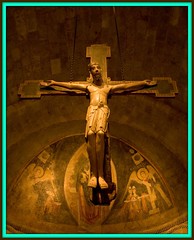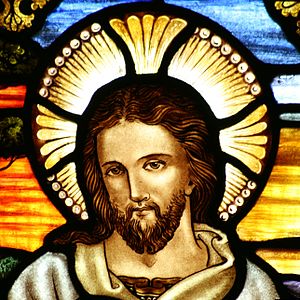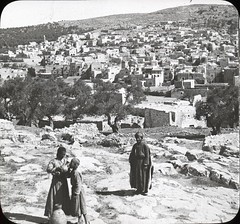Balaam was a prophet. His story is recorded in Numbers 22-24, and he is mentioned by other prophets, too. He was the son of Beor and he lived in Pethor. He was a Midianite. He had a reputation of prophesying for profit. The people of Moab approached the people of Midian with fears of the Israelites because of what they had done to the Amorites. "They will lick us up like an ox licks up grass."
Balak the son of Zippor was the king of the Moabites, and he sent messengers to Balaam telling him of the huge number of the Israelites and asking for help to stand against them. "Come over here and curse them for me," he said. "I know that whoever you bless is blessed, and whoever you curse is cursed."
Balaam received the entourage and invited them to spend the night. God spoke to him saying that he must not curse the Israelites because they were blessed. He refused to go with them. They returned to Balak with the message. Balak was not to be triffled with. He sent a more distinguished delegation and a larger bribe. Balaam received them and assured them that it didn't matter because God had blessed Israel, but he allowed them to spend the night to find out what God would say. God gave Balaam permission to go with them, but he was to say only what God allowed.
God was angry that Balaam went with the delegation. I searched but found no cause for his anger. I surmised that, perhaps, Balaam was tempted by the bribe or he sought some grievance against Israel, too. In any event, Balaam saddled his donkey and went. The donkey saw the angel of the Lord on the path and turned aside. Balaam beat him and forced him back on the road. Two more times the donkey refused to move and pinned Balaam's foot against a rock and lay down on the path. Each time Balaam beat the animal. His behavior was due to the presence of the angel, but he was hidden from Balaam's eyes.
Finally the animal spoke to Balaam, "Why are you beating me?" Balaam responded, "You have made a fool of me! If I had a sword I would kill you now." The donkey continued to chide Balaam, and then the angel revealed his presence, and Balaam was revealed as the fool. The angel allowed Balaam to continue to meet Balak, but with this new evidence of the power of the God, Balaam was reminded that he could not say anything that God did not ordain.
Balak and his officials and Balaam made sacrifices before going out to view the outskirts of the Israeli camp. They erected seven altars at Bamoth-Baal and offered sacrifices on them. Then Balaam went up the mountain and spoke with God. When he returned, he could only speak blessing on Israel. "How can I curse those whom God has not cursed?...Let my final end be as theirs."
Balak did not give up. They went to a site on Mount Pisgah where they again viewed the Israeli camp. They built seven more altars and made more sacrifices. Balaam went up the mountain to hear God's message. When he returned he confirmed what he had said before.
“Arise, Balak, and listen;
hear me, son of Zippor.
God is not human, that he should lie,
not a human being, that he should change his mind.
Does he speak and then not act?
Does he promise and not fulfill?
I have received a command to bless;
he has blessed, and I cannot change it."
Balak begged Balaam not to bless them if he couldn't do as he had asked. Balaam said, "I can only say what God has said to me."
Balak took them to a different place on Peor overlooking the wasteland. They built seven altars and offered seven sacrifices. This time the prophesy was of a land of plenty with gardens and water, strength and security.
In his anger Balak sent Balaam away without reward. But Balaam was on a roll. He prophesied about future events that included the rise of Israel as a strong nation and the defeat of the lands of the Amalekites and the Kenites, and the rise of Cyprus to defeat Ashur and Eber.
Balak did not get what he bargained for and Balaam was not paid for his efforts. Everybody went home to see what the future of Israel would produce. The lessons in this story are numerous: It is useless to try to change the will of God; even a donkey knows better than to challenge an angel; don't try to curse what God has blessed. There may be a reciprocal of the last one: Don't try to bless what God has cursed.





















